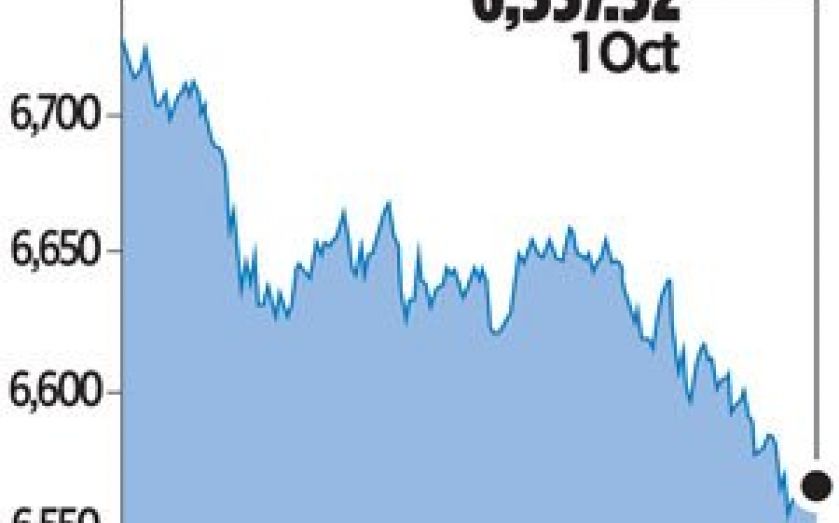Supermarkets sweep to the bottom of FTSE – London Report

BRITAIN’S top equity index fell yesterday to its lowest closing level in nearly six months, as a new slump in the shares of supermarket retailers hit the market.
The sentiment was also hit by news that Britain’s manufacturing grew at the slowest rate in 17 months in September as demand weakened at home and in Europe, a slowdown likely to be noticed by the Bank of England as it debates when to start raising interest rates.
The blue-chip FTSE 100 index fell one per cent, or 65.20 points, to 6,557.52 points – its lowest closing level since 15 April.
Sainsbury fell seven per cent to 234p, after the supermarket operator cut its annual sales forecast and put its dividend under review.
Troubled rival Tesco weakened 3.2 per cent to 180.20p, after saying it was under investigation by regulators.
The investigation comes after an accounting scandal that has wiped billions off Tesco’s market capitalisation over the past week and a half.
Morrisons – whose shares also went ex-dividend – fell 4.99 per cent to 159.90p.
Royal Mail was the best performer on the index, rising 1.9 per cent to 399.10p, after UBS raised its rating on the stock to “neutral” from “sell”.
Energy issues were led down by BG Group, off 4.12 per cent to 1,093p, which was buying equipment for a North Sea exploration well. Cairn Energy fell 2.78 per cent to 171.60p.
Some miners were fell, led by Lonmin, off 4.84 per cent to 176.80p. But FinnAust Mining’s shares skyrocketed 28.76 per cent to 3.38p, after it said tests had confirmed the discovery of additional high-grade copper, zinc, silver and gold mineralisation at its Hammaslahti project in Finland.
On the currency markets, the pound fell against the dollar after a weak survey of the UK manufacturing sector added to doubts about when the Bank of England might start to raise interest rates. The Markit/CIPS UK Manufacturing Purchasing Managers Index (PMI) fell to 51.6, its lowest level since April last year and below a forecast of 52.5 in a Reuters poll of economists.
The pound dipped to a two-week low of $1.616 against the dollar, before recovering to $1.621.
Against the euro, sterling rose to near a two-year high to close 1.285 euros.
The move comes a day before European Central Bank chief Mario Draghi gives more details on new asset purchase programmes announced last month.